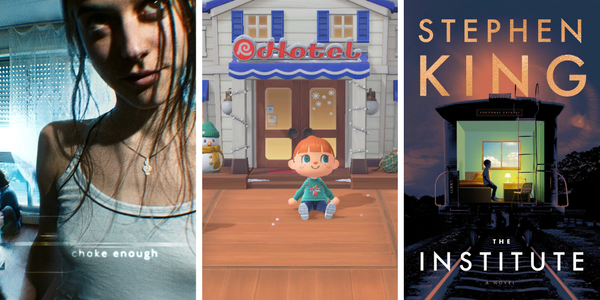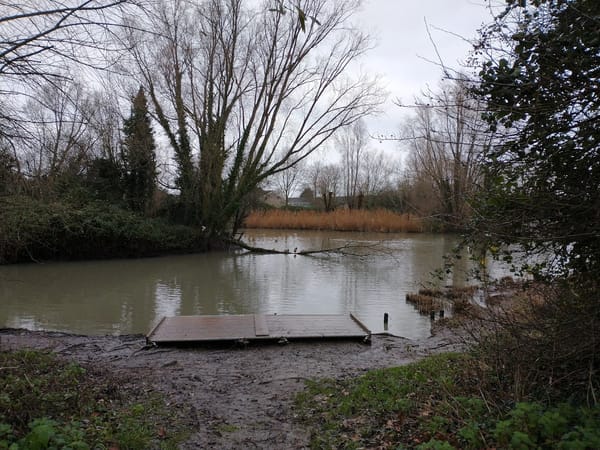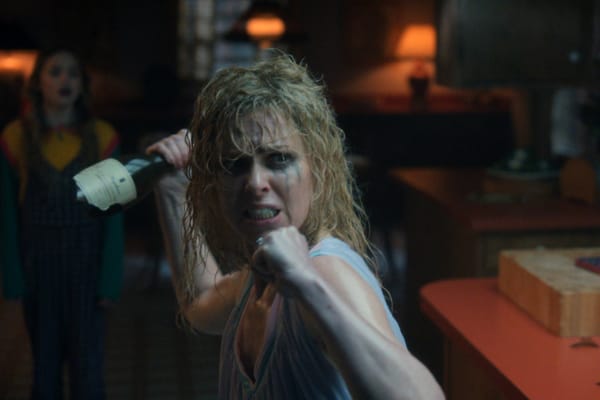Cursed Spaces
on haunted hotels and treading old paths
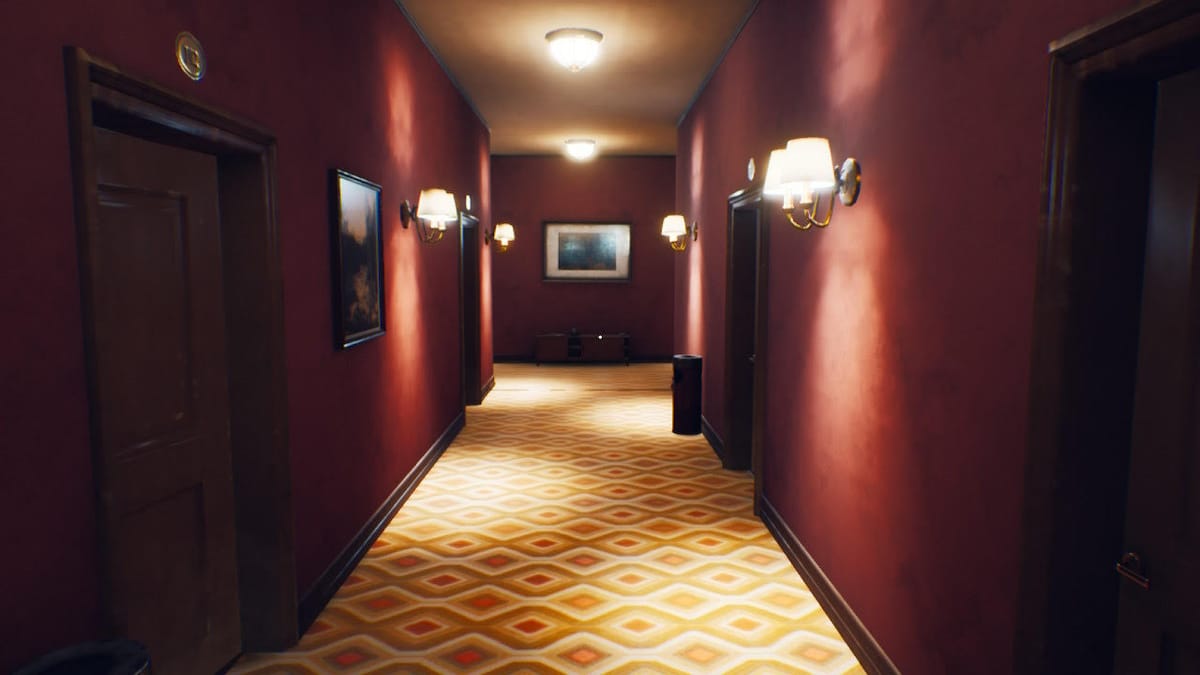
I’m replaying The Suicide of Rachel Foster. I got to review this when I wrote for Last Word on Gaming; I really detested part of the story, and I’ll be honest, I’m not looking forward to getting there again. I debated whether I should write about it at all, actually. I guess I wanted to see if I still felt the same way.
Replaying it has reminded me of how much I wanted to love this game. Most of that is down to the setting: as Nicole, your job is to assess the condition of your parent’s abandoned hotel, gifted to you in your mother’s will. A storm rolls in, and so Nicole is stuck there: nothing to do but explore and try not to go insane.

It thrilled me because this is exactly my cup of tea. I love urban exploration, I love abandoned places, I love the thought of wandering around an old building thick with dust and memories. There is something achingly compelling about a preserved empty space. Doesn’t matter if it’s a mall or a cinema or a big-ass house. Anywhere that used to be full of life and is now desolate, still, and decaying is both thrilling and, I don’t know. Mournful. It’s sad, you know? It’s a very physical reminder that nothing is permanent, and that time can change everything.

I started replaying Rachel Foster during Storm Babet. I was alone in the house in the hour before the school run; it definitely helped build the atmosphere. Outside, I could hear rain hammering and the occasional car swooshing through the rain.
There are some nice scares in this game. As you explore at the start, thunder cracks just as a prompt pops up on the screen:
Press L to run.
What?! What am I running from? Clattering, creaking, and scraping noises kick in. It turns out to be some dodgy shutters falling apart in the storm. But the sound design is excellent: floorboards groan under Nicole’s footsteps in a way that sends chills up my spine, and later, when a phone rings again, I jump out of my skin.
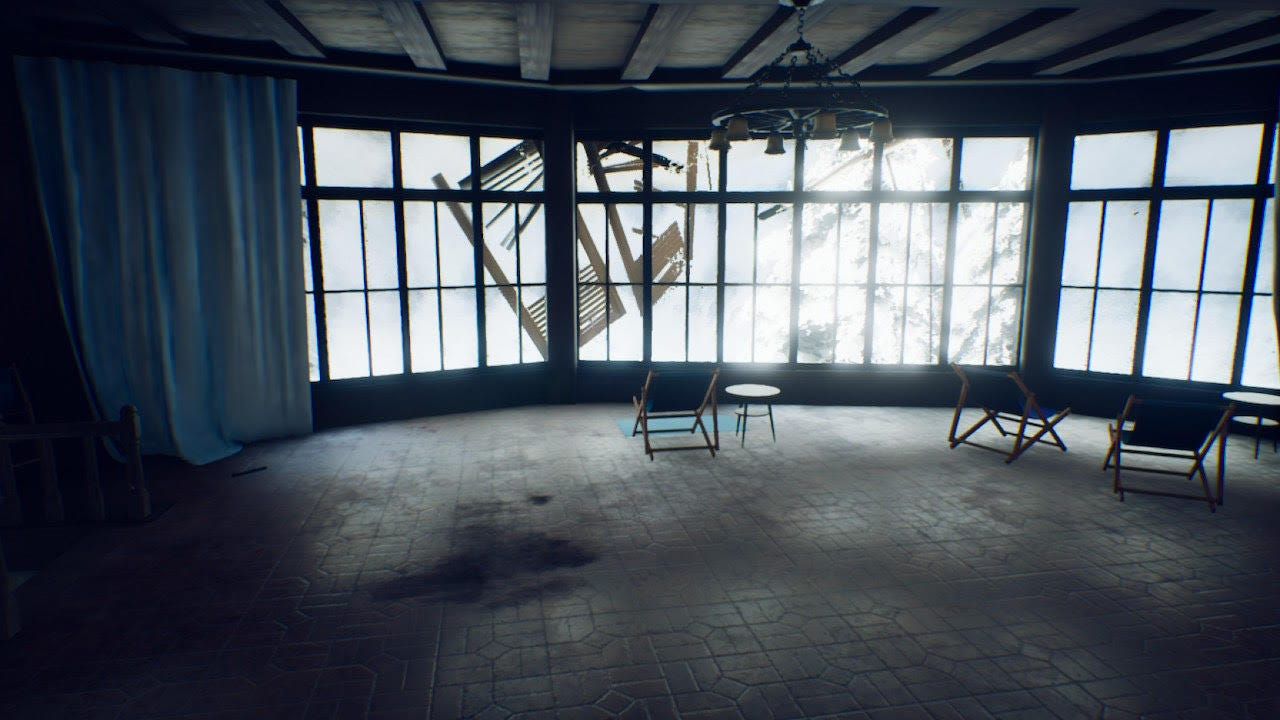
Wandering around the hotel, I feel a Silent Hill-esque sense of relief every time a door doesn’t open. Another room I don’t have to think about; whatever’s hidden behind there is not for me to face.

For Nicole, it’s not just the wailing of pipes and intermittent power outages that she finds frightening. It’s her past. And her past confronts her with every step she takes. It’s not just her childhood bedroom that’s the problem. It’s everything. The long, imposing hallways. The paintings on the wall. Her father’s strange book collection, with his increasingly manic scribblings in the margins. Nicole is suffocatingly close to her own memories. Literally trapped with them.
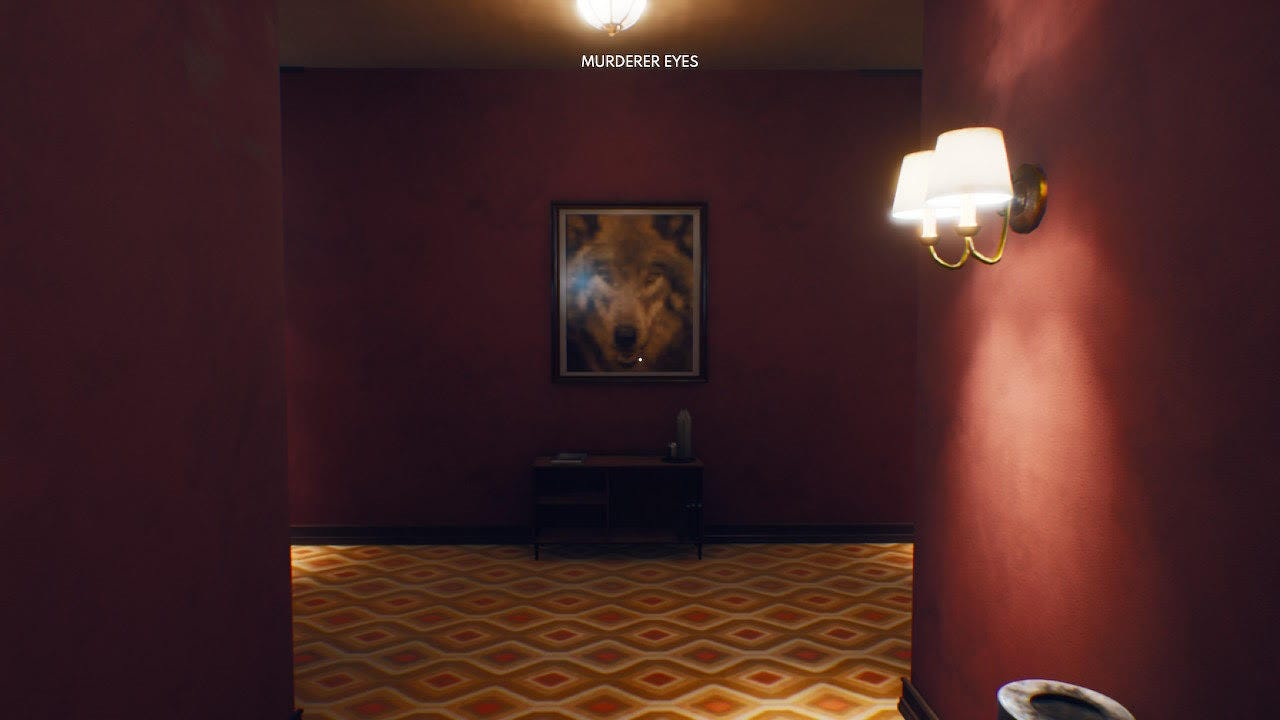
Anyway, this got me thinking about old spaces with bad memories and what to do with them.
The one and only time I ever did proper urban exploration was when I was a teenager. I was with a boy that I thought I loved and who, although I was unaware of it at the time, was on the cusp of becoming violently abusive to me. We snuck into an old, crumbling building. Most towns have these, I think. Empty buildings that get stuck in a limbo of bureaucracy and historical significance, only to eventually crumble into dust.
I guess I had some deeply-rooted urge to push the boundaries, to open those locked doors and find whatever lurked behind them. But as soon as we got there, those urges fled my mind. I suddenly realised what a total pillock I had been to put myself in this position. The floorboards felt thin and fragile, and when we entered one room, a large, jagged piece of glass fell from a rotten window pane and shattered at our feet.
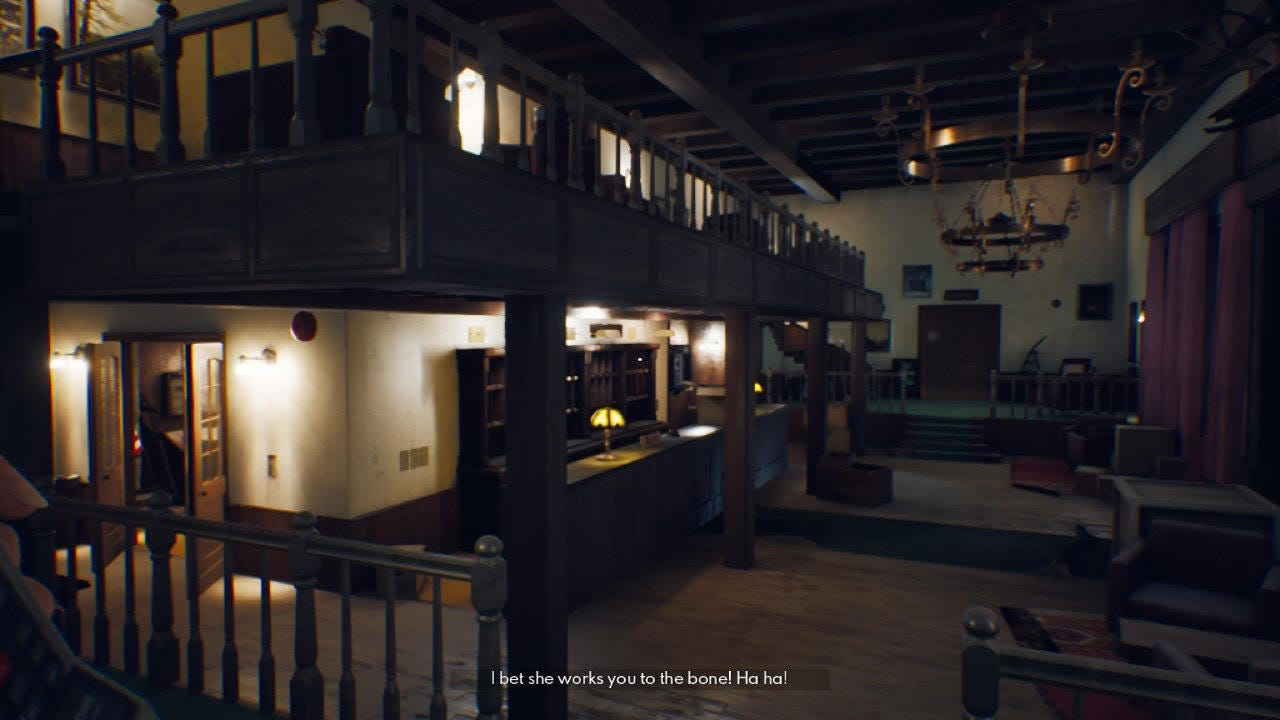
I remember thinking, I could die here. I could fall through the floor and die and it will be such a waste. I also remember turning to that boy and sensing, for the first time, that he wasn’t a safe person. On the way home - after having crawled on my belly under a fence to get out - I remember how the look on his face swirled around in my head. I remember trying to reason with my own instincts. To work out whether it was the building that made me feel this way, or whether it was him.

I still live in this town and for years, we had to drive past that place at least once a week. In fact, in the years between then and now, I’ve had to revisit a lot of places that hold sadness for me. What I’ve found is that life, eventually, provides you with better memories associated with those places instead. It doesn’t erase the bad memories, but it kind of cushions them instead.
And so, when we do drive past that place, I think of other things. Like the time that a bunch of us wandered near to the building at night after work, telling ghost stories, eating chips, and freaking each other out so much we were all jumpy and skittish on the way home. Or I think about the time that my friends Lucy and Rachel came to stay, and we sat on a wall nearby, talking about our plans for adulthood in the ruins of an old building, bright with the possibilities of the future.
Mostly, I think of that one time when me and Chris were first dating, and we parked in a scenic spot overlooking that crumbling building, listening to Aqualung’s first album, and I was so tired I leaned on Chris and drifted off to sleep. It was the first time I felt safe enough to do that with a boy.
Sometimes, I think about how lucky I am. How lucky I was, to escape that building and that chapter of my life, and to create a whole new catalogue of memories instead. Do you ever sit down and think about the close calls? It’s not something I’d recommend doing very often, but I can’t help but think about it now.

In Rachel Foster, Rachel herself doesn’t get to rebuild her life. Her ‘love affair’ with Nicole’s father, Leonard, sees Rachel isolated from her own family and friends, hidden away in the hotel like a shameful secret. That is how she lives her last days: alone, grappling with a pregnancy at the age of 16. Rachel may have been infatuated with Leonard. She may have been terrified. We don’t know because we never get to hear her. She becomes a figure of intrigue, an object of local fascination, and for some people, an enemy to hate.
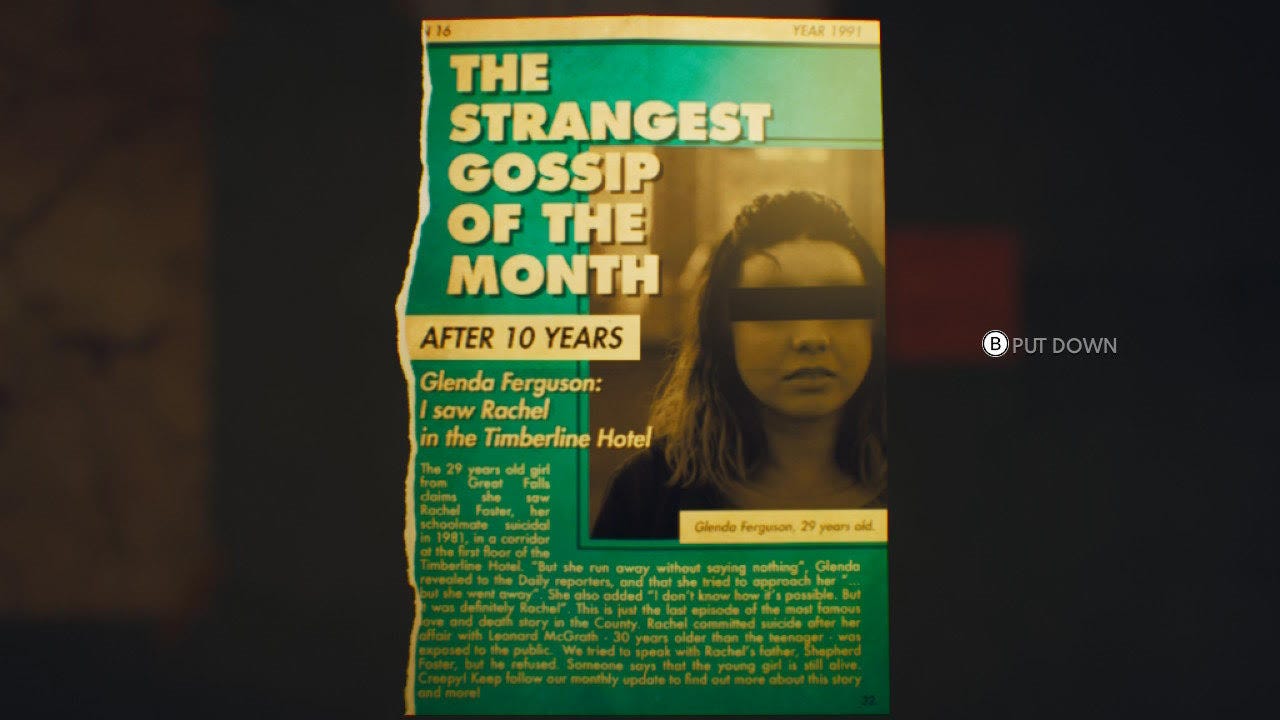
And on my first playthrough, I found myself really angry about this: angry that Leonard gets to have a long, drawn-out soliloquy about his grand love affair with a girl the same age as his daughter. We hear all about his feelings, his sadness, his dashed hopes and dreams. But nothing from Rachel.
I do think this game could have dealt with this better: they could have made it much clearer that Leonard’s long-suffering rant was actually pathetic and not in the slightest bit romantic. And I hated the twist. I hated both endings. I left this game feeling sad and kind of … defeated.
But, now that I reflect on it, perhaps that’s actually an accurate depiction of how things can be. Because if I had died in that building all those years ago, no one would know the thoughts that were going through my head. No one would know that I was starting to feel afraid for my safety all the time, not just on that one occasion. Rachel is the girl who fell through the floorboards, never to be heard from again. She doesn’t get a voice or a chance to make new memories. And that happens in real life all the time. And it is frustrating and pointless and horribly, terribly sad.
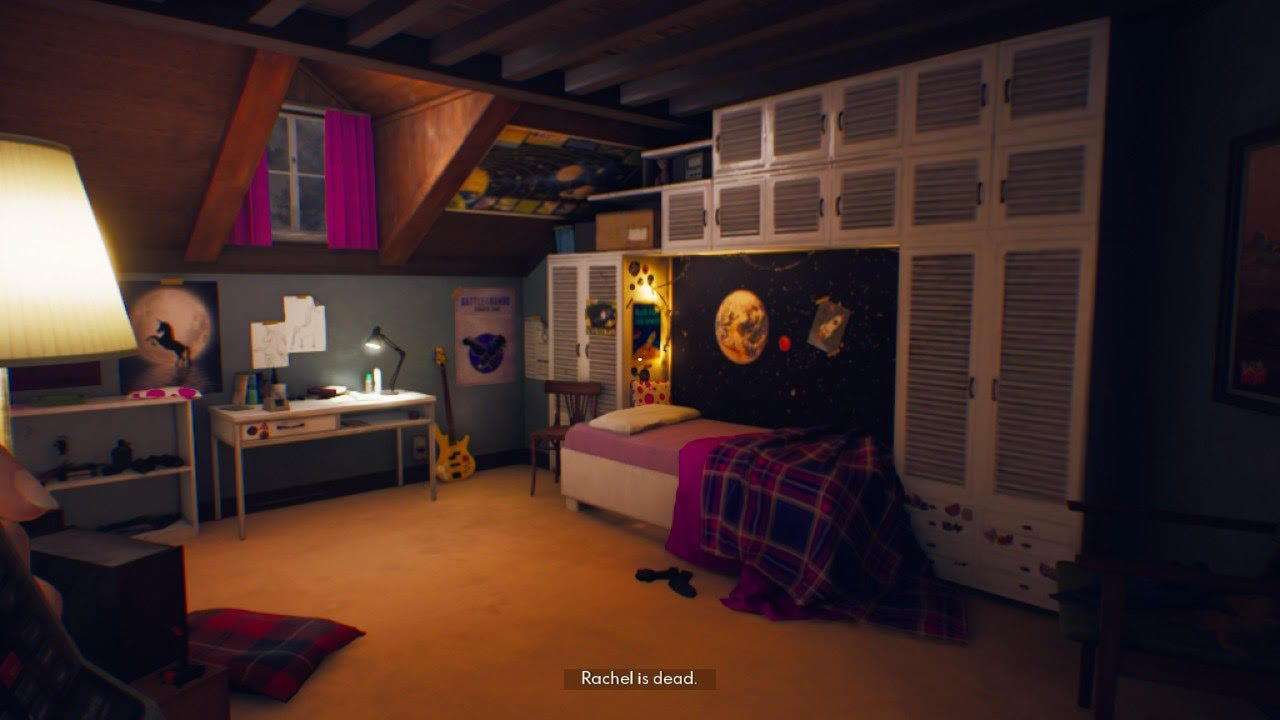
I dunno. I’m still thinking it through. I guess it comes down to whether or not you think that video games need to have happy endings, and if not happy endings, at least some kind of redemption. I came away from this game confused about how I was meant to feel. But also, once again, I feel deeply relieved to be here: alive, happy, and free.



